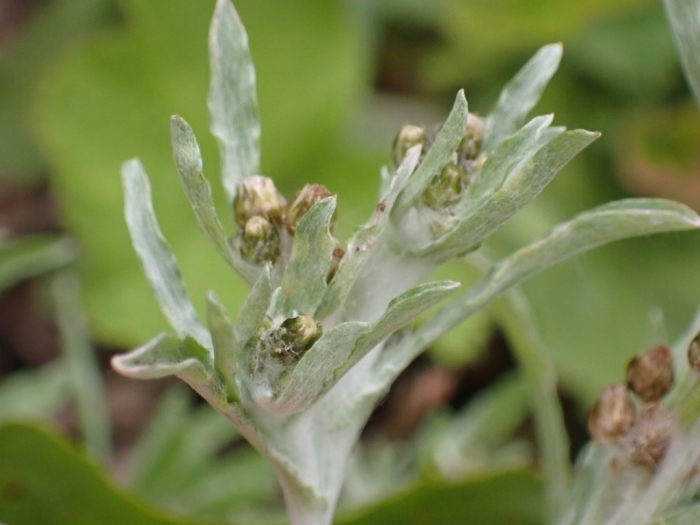Marsh Cudweed
(Gnaphalium uliginosum)
Marsh Cudweed (Gnaphalium uliginosum)
/
/

SK53
CC BY-SA 4.0
Image By:
SK53
Recorded By:
Copyright:
CC BY-SA 4.0
Copyright Notice:
Photo by: SK53 | License Type: CC BY-SA 4.0 | License URL: http://creativecommons.org/licenses/by-sa/4.0/ | Rights Holder: SK53 | Publisher: iNaturalist | Date Created: 2023-07-03T11:40:04-07:00 |























Estimated Native Range
Summary
Gnaphalium uliginosum, commonly known as marsh cudweed, is an annual herb that is native to a variety of habitats including damp, disturbed ground, tracks, and open areas such as arable grasslands and paths, often with a preference for acidic soils. It is widespread across much of Europe, Asia, and North America. The plant typically grows to a height of 2-8 inches and is characterized by its very woolly appearance, which helps to conserve moisture. Marsh cudweed has small, inconspicuous flowers that are not particularly showy, but it is valued for its ability to thrive in challenging conditions where other plants may struggle.
Marsh cudweed is often used in cultivation for its resilience and ability to cover ground quickly, making it suitable for areas that are prone to erosion or require low-maintenance vegetation. It prefers full sun to part shade and can tolerate a range of soil types, provided they are well-drained. While it is not known for any significant horticultural benefits, its presence can be beneficial in soil stabilization and as a pioneer species in disturbed sites. However, gardeners should be cautious as Gnaphalium uliginosum can be potentially invasive in some regions outside its native range, and it is advisable to check local regulations before planting.CC BY-SA 4.0
Marsh cudweed is often used in cultivation for its resilience and ability to cover ground quickly, making it suitable for areas that are prone to erosion or require low-maintenance vegetation. It prefers full sun to part shade and can tolerate a range of soil types, provided they are well-drained. While it is not known for any significant horticultural benefits, its presence can be beneficial in soil stabilization and as a pioneer species in disturbed sites. However, gardeners should be cautious as Gnaphalium uliginosum can be potentially invasive in some regions outside its native range, and it is advisable to check local regulations before planting.CC BY-SA 4.0
Plant Description
- Plant Type: Herb
- Height: 0.5-1 feet
- Width: 0.5-1 feet
- Growth Rate: Moderate
- Flower Color: White
- Flowering Season: Summer, Fall
- Leaf Retention:
Growth Requirements
- Sun: Full Sun, Part Shade
- Water: Medium
- Drainage: Medium, Fast
Common Uses
Erosion Control, Low Maintenance
Natural Habitat
Native to damp, disturbed ground, tracks, open arable grasslands, and paths, often with acidic soils
Other Names
Common Names: Marsh Cudweed, Marsh Everlasting, Low Cudweed
Scientific Names: , Gnaphalium uliginosum, Dasyanthus uliginosus, Filaginella baicalensis, Filaginella kasachstanica, Filaginella lasiocarpa, Filaginella malzii, Filaginella mandshurica, Filaginella nuda, Filaginella tranzschelii
GBIF Accepted Name: